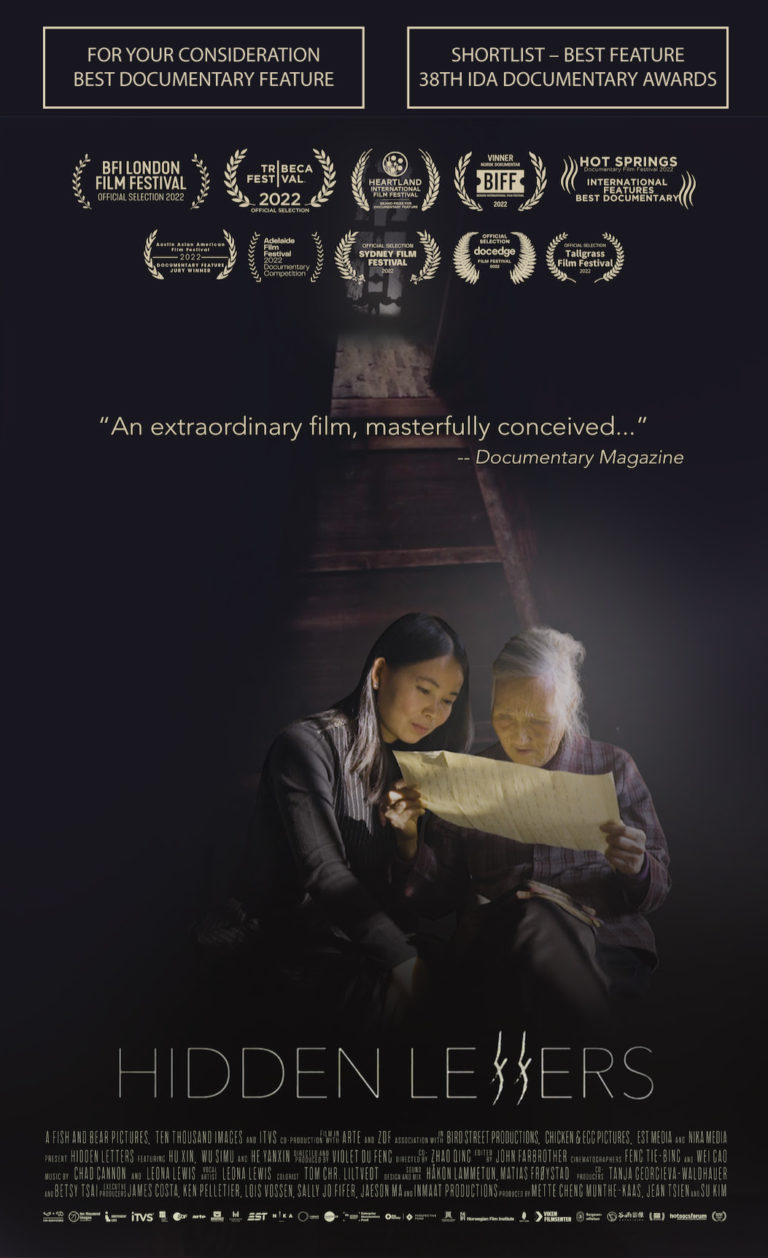
The existence of secret languages comes from the need for communication that can’t be discerned or understood by others. It can serve to unite those suffering from discriminatory treatment and give them a way in which to find hope and inspiration under miserable circumstances. The exposure and mainstreaming of such languages inherently takes away some of that magic and power, even if the primary purpose is to educate and instill values whose previous absence enabled oppressive societal structures. In its exploration of Nushu, Hidden Letters illustrates the contradiction of celebration and appropriation.
Nushu has its roots in China, where women who were relegated to their homes and had their feet bound as a way of controlling them to achieve a perceived status of beauty wrote to each other with poems and songs. The present-day knowledge of this formerly unknown method of communication for those with little exposure to the outside world has led to a boom in interest, which in turn has created calls for commercialization. Hu Xin and Simu are both dedicated to the preservation of Nushu but approach that fidelity in very different ways given where they are in their lives: recently divorced and preparing to become a wife, respectively. Nushu has plenty to teach both of them but takes on a new relevance in a modern age where dissent doesn’t look the same as it did decades or centuries ago.

The way in which Hidden Letters begins feels firmly rooted in the past, with images of women seen only faintly, suggesting the way in which they might have felt, hidden from the world and forced to forge their own methods of coping with the limits of what they could access. There is a true beauty to the idea of Nushu and the reason for its creation, and how it has been sustained from generation to generation by being passed down, which means that it must be learned and studied carefully since it is not taught in the way that so many other languages are in schools around the world.
The need for Nushu to be profitable feels particularly at odds with the very reason that it was created, and that irony seems to be entirely lost on those who promote an iPhone that is in Nushu or a KFC ad that proudly champions the language. It should come as no surprise that men are the ones at the forefront of such operations, even if, in certain cases, they have women unveil their new announcements to once again publicly affirm their apparent support for a language of female empowerment. Yet this is not the point of Nushu, and the more widespread and diluted it becomes, the less value and individuality it can retain.

Seeing how Hu Xin and Simu engage with Nushu and its role in their lives is especially interesting. Hu Xin works as a museum guide where she informs visitors about Nushu, which feels like the most authentic way to showcase it, as a relic of the past whose most poignant elements have now been preserved for others to come and witness. Simu’s impending marriage is steeped in her passion for Nushu, with her fiancé having proven himself by quickly translating a challenge she gave to him, but she starts to see how, despite knowing how much it means to her, her husband still expects her to become a traditional wife.
Hidden Letters, which has been shortlisted for the Oscar for Best Documentary Feature, compellingly engages with the history of the language and the role it has to play today, serving that purpose of exposure and tribute by probing the depths of this once-secret language and what it means for it now to be publicly-known. It also serves as a warning for how purity and authenticity can be challenged by a desire to publicize something beautiful, a concept this film reckons with and ultimately doesn’t conclusively answer.
Grade: B+
Check out more of Abe Friedtanzer’s articles.
Hidden Letters is currently available on VOD and premieres on PBS on March 27th.

